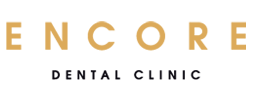Teeth are the guardians, not only of our smile, but also as the first wall of defence in the protection of our general state of wellbeing. They affect the way we eat, what we can eat, and how we process it. They even control the way we speak. Yet these multi-taskers that seldom rest, are too often overlooked, and sometimes even abused.
It’s sometimes difficult to acknowledge the part teeth play in our lives, and shimmy past the daily routine of keeping them clean. It’s often easy to delay that six-monthly check-up at the dentist’s rooms because of convenience. And it is easy to forget teeth’s intended function, and put them to work as tools to open bottles, or to cut through threads.
Then, after neglecting them, we complain when our teeth sound an alarm by inflicting excruciating pain on us, in an attempt to get the message across that they are in trouble.
Consequences of unhealthy teeth
While the pain of toothache is often enough to send us rushing into action, it can sometimes come too late. Damage on a larger scale could already be happening.
Many doctors see the teeth and mouth as a key to our general health – a kind of diagnostic system. Just a swab of our saliva can sometimes tell a great deal about our general health, and give warning of the presence of systemic disease. Established links connect decaying teeth, and the gum disease they can cause, with many diseases.
Unhealthy teeth can contribute to the following problems:
- Tooth decay and tooth loss
- Gum disease and bone loss
- Heart and respiratory disease
- Worsening of diabetes
- Strokes
- Osteoporosis
- Increased chance of oral cancer
- Emotional issues, including lowered confidence and self-esteem and embarrassment
How does this happen?
Teeth bite, tear, chew and break down the food we eat, readying it for the digestive process to begin. Nothing that enters our mouths gets past them. This system works well, provided the teeth are healthy and strong, and capable of performing their intended function.
If they are chipped, broken, missing, or out of alignment, it does more than affect your smile. It destroys their optimum functionality. Cavities, gum recession and poor hygiene can kick off a chain reaction in terms of bacteria and plaque build-up, which can result in tartar, gum recession and gum disease. This, in turn, can lead to tooth and bone loss and impact on the rest of your health.
There is no age restriction on caring for teeth
It’s never too early, or too late to start caring for your teeth. Teach your children early in life the importance of oral hygiene and the reasons why it is important. It will prepare them well for a lifetime of tooth care.
The permanent teeth we get at a tender age have to last us an entire lifetime. If we lose them, they are gone for good. Fillings, crowns, dentures and implants can fill the gaps, but it will not be the same, even if it looks like it is.
Keeping your teeth healthy becomes especially relevant, and often more difficult, as you get older. Statistics show that three out of four adults over 60 only retain some of their own teeth. And almost one in four of those in the 65 to 74 age group, suffer from severe gum disease which can result in them losing even more of their natural teeth. Very often, the gum disease is the result of poor oral hygiene, compounded by a poor diet, which leads to a build-up of plaque and tartar over the years.
New threats provide new challenges for our oral health in our senior years. On the one hand, necessary medications can adversely affect the teeth, and on the other, the diseases that call for those medications, make it more difficult to take the right actions to fight them. Dementia, arthritis and loss of mobility, can lead to forgetting, or being unable, to carry out regular oral hygiene programs. They can also affect good nutrition and regular eating habits.
Keeping teeth healthy
- Gently brush with a soft brush, twice a day for 2 minutes each time.
- Floss between the teeth once a day to clear out food particles and debris from difficult to reach places.
- Avoid acidic or sugary foods that are a playground for plaque and the bacteria in it.
- Quit smoking or using tobacco products.
- Have regular dental check-ups, preferably every six months, and no less than yearly. That way, the dentist will be able to check for early signs of disease, perform necessary procedures, and give advice on any changes necessary regarding oral hygiene.
- Contact the dentist immediately if there is a noticeable change, pain or bleeding in the mouth, or if teeth are injured.
- Use teeth only for their designed function – and that is chewing, tearing and pulping food.
Dental care involves working together with a dentist to ensure that our teeth stay healthy (and in our mouths) for as long as possible. That way they can continue to contribute to our general state of well-being.




